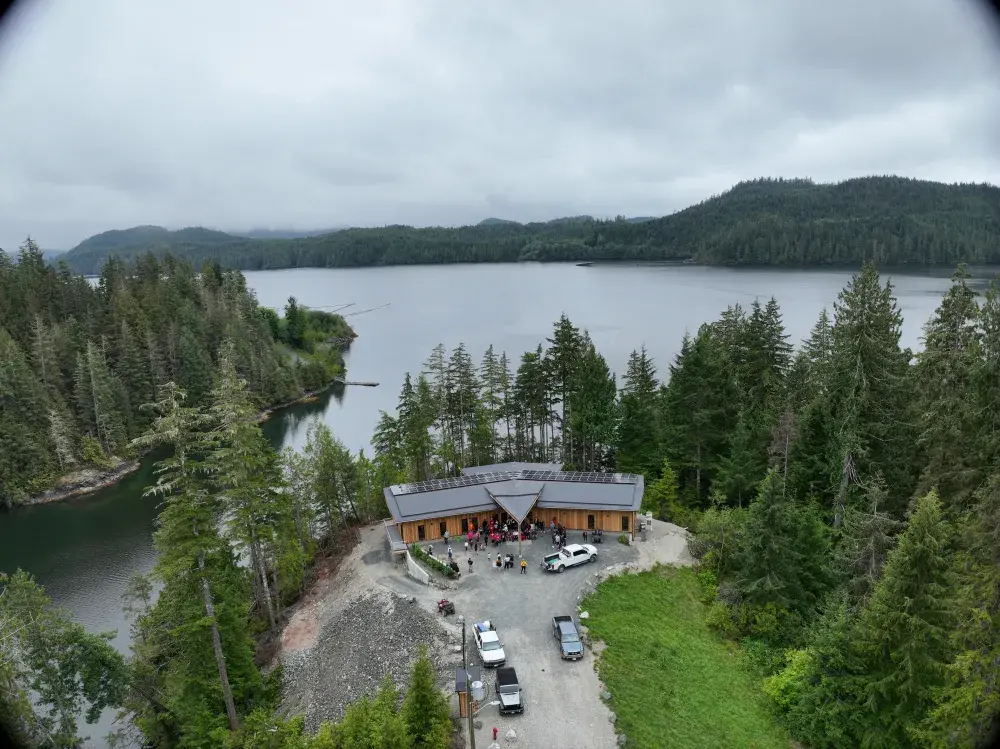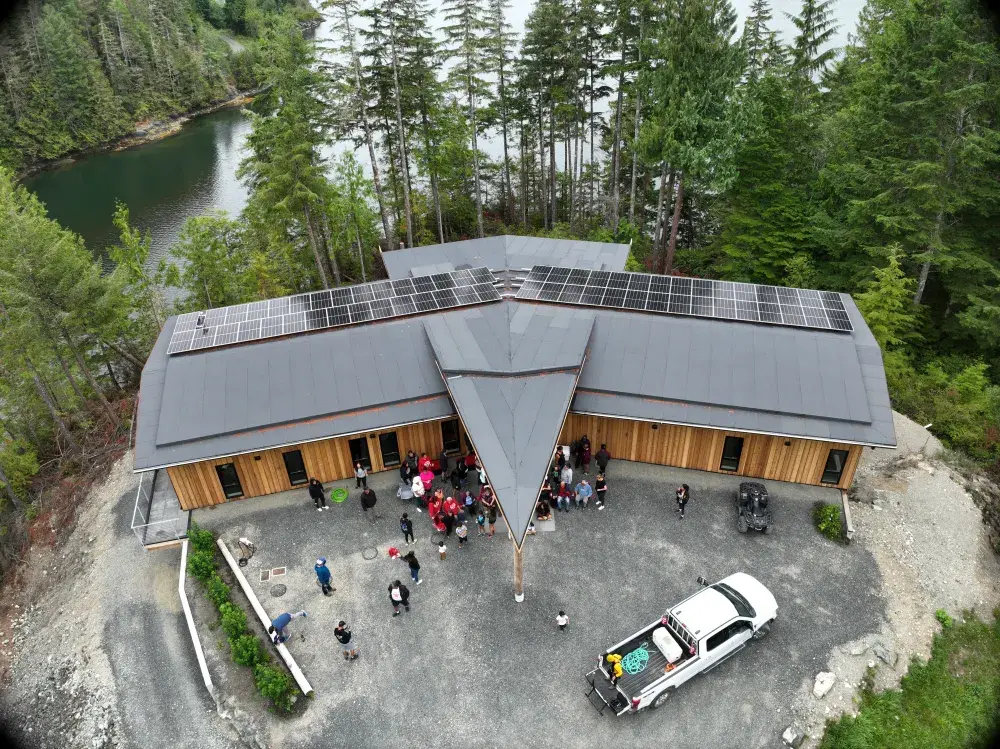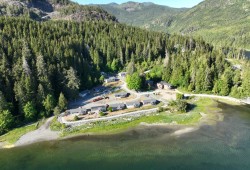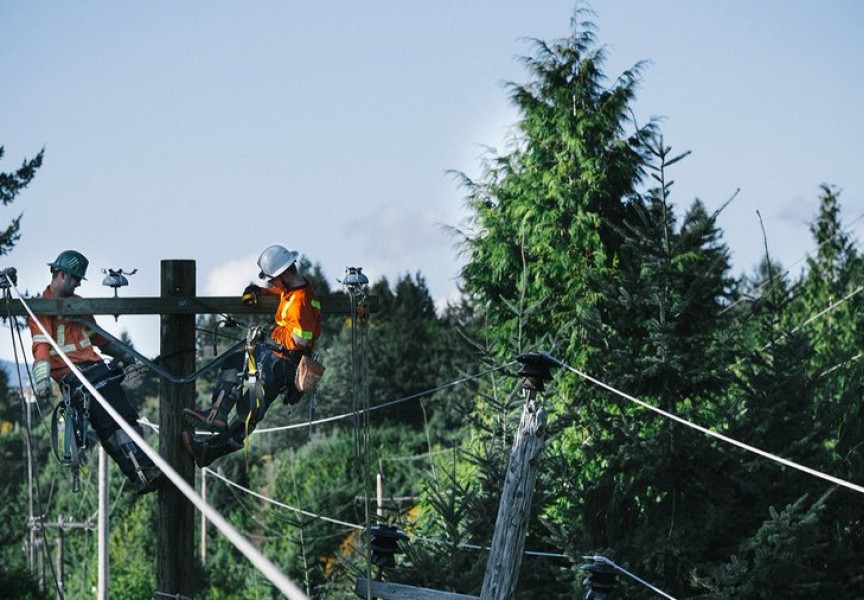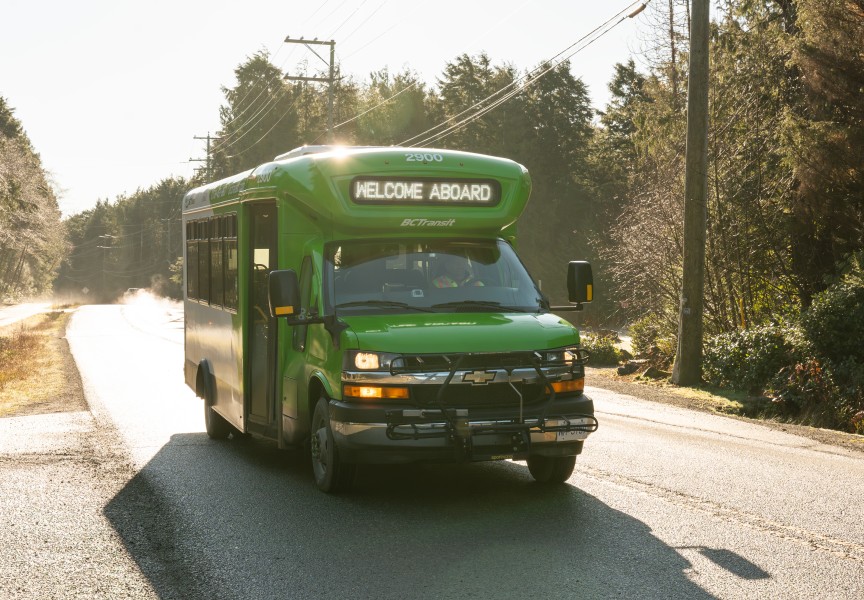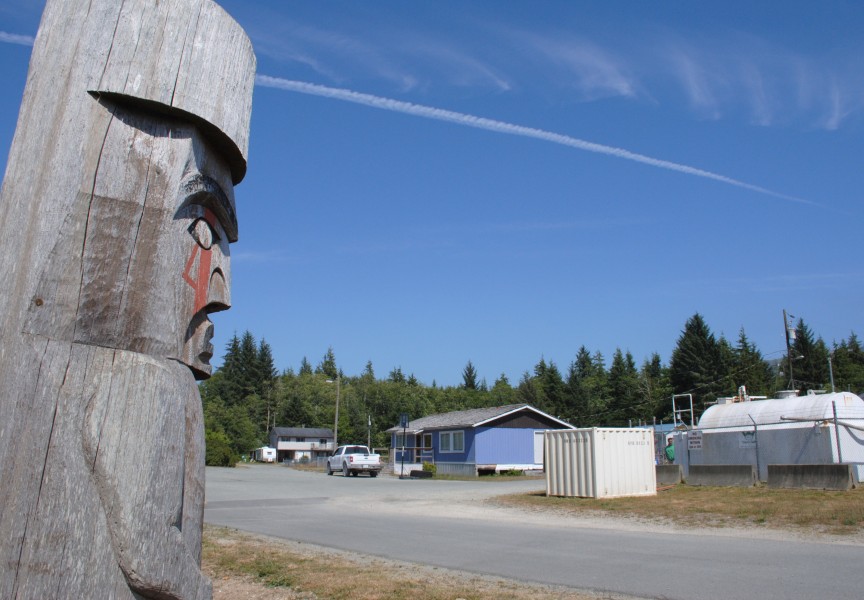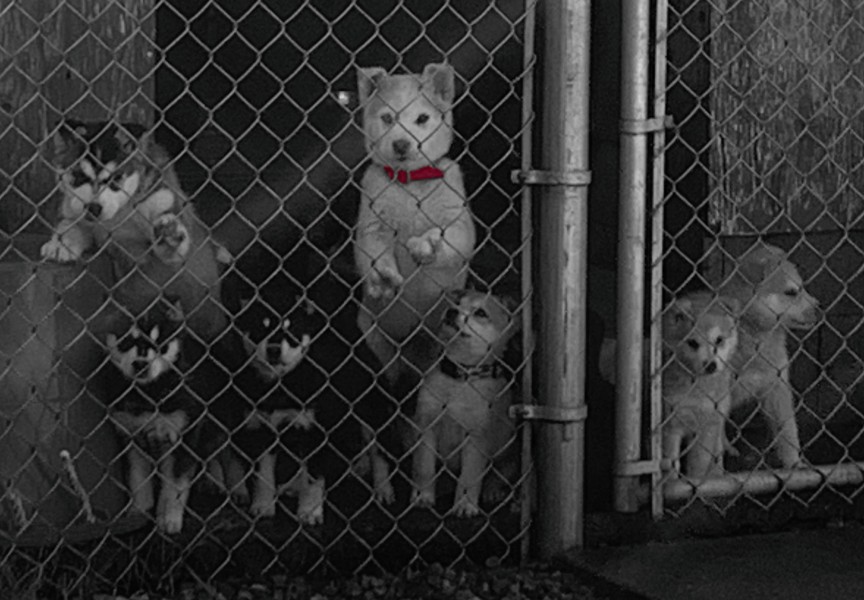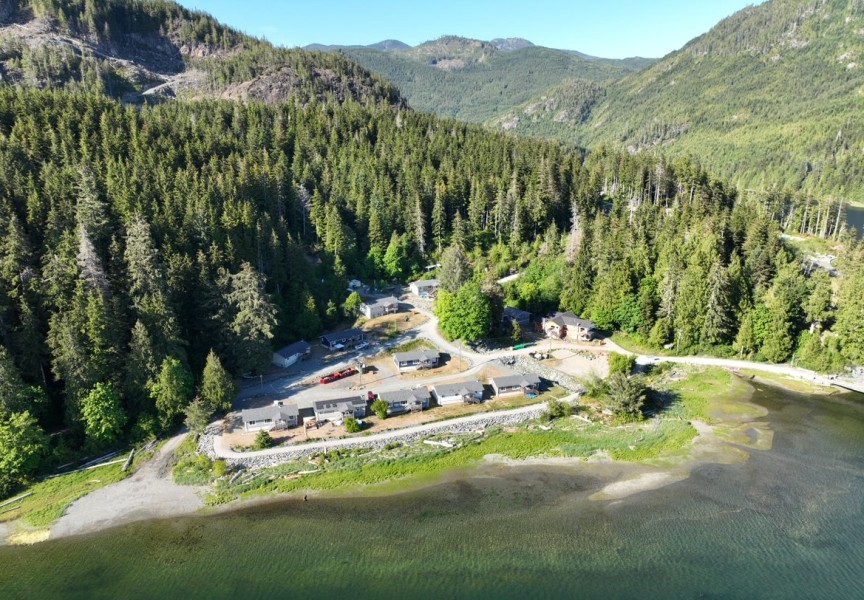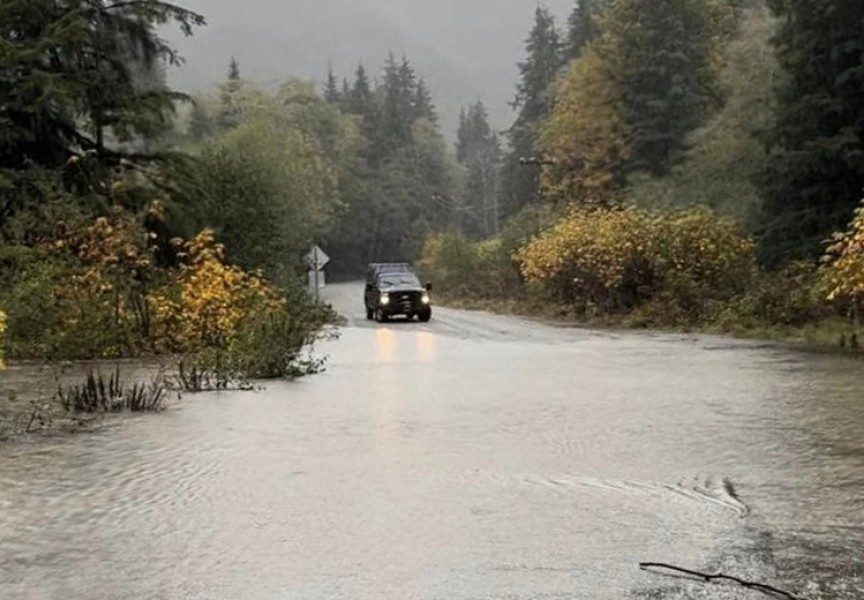Uchucklesaht’s community at Ehthlateese, a village of about 14 family homes, is getting clean, reliable energy in its growing community through funding from the First Nations Clean Energy Business Fund.
According to Nigel Moore, Uchucklesaht’s special projects manager, Ehthlateese has been growing rapidly over the past five years and is expected to grow further as more citizens make the move home to the pristine, waterfront village south of Henderson Lake.
But Ehthlateese is off grid and Moore says there is no chance that the remote community will ever be in the main BC Hydro system. The tiny village powers its homes and wellness centre on diesel-fueled generators, operated by BC Hydro.
The generators are loud in an otherwise peaceful location and they require delivery and storage of diesel fuel to operate, running the risk of oil spills that would be disastrous for the environment. The community needs a clean, reliable source of energy for its growing population.
On Feb. 13 the B.C. Ministry of Indigenous Relations and Reconciliation announced that both the Uchucklesaht Tribe and Ahousaht First Nation would receive funding to develop clean-energy projects.
The funding will allow the nations access to more efficient and sustainable sources of energy. Uchucklesaht Tribe will receive $499,140 to develop run of the river hydroelectric and solar-power initiatives.
“The nation will develop two clean energy projects over time to eliminate the need for diesel energy,” said Moore.
They have identified a creek that could support a run of river hydro electric system. According to Clean Energy BC, run-of-river hydroelectric (ROR hydro) projects generate electricity by channeling natural stream flows and utilizing elevation differences in mountainous regions.
According to Moore, the ROR hydro project would be ideal for Ehthlateese in the wet season near a place like Henderson Lake, known for its abundance of rainfall and clean water.
But with climate change and summer droughts, Uchucklesaht have plans for a back-up, complimentary clean energy system where they will harness solar power with the installation of solar panels on a local mountainside.
“We will use the resources available in our area and use them when they are in season,” said Moore.
"The B.C. government is working in partnership with First Nations to support resilient communities on Vancouver Island and the coast,” stated Murray Rankin, Minster of Indigenous Relations and Reconciliation, in a press release. “Supported by the First Nations Clean Energy Business Fund, projects like the Uchucklesaht hydroelectric development will power remote communities and create economic opportunities,"
"Funding from FNCEBF makes an important contribution towards Uchucklesaht's development of community-owned clean-energy systems in the village of Ehthlateese,” said Uchucklesaht Chief Councillor Wilfred Cootes Jr. “Developing new sources of clean energy is fundamental to the revitalization of the village and requires consistent efforts to invest in the design and development of new infrastructure over time.”
Moore stated that in addition to developing clean energy projects in the village, Ehthlateese residents now have a new water treatment plant and septic field.
“These partnerships with the Ahousaht First Nation and Uchucklesaht Tribe will support our CleanBC goals - empowering local economic development while mitigating the effects of climate change," said Josie Osborne, Minister of Energy, Mines and Low Carbon Innovation.
Ahousaht First Nation will receive $50,000 from FNCEBF to develop a comprehensive community plan to identify energy-efficiency measures and explore potential clean-energy initiatives.
“Ahousaht is excited to move forward with clean-energy initiatives in our Nation and is grateful for the support from FNCEBF,” said Ahousaht Chief Councillor n̓aasʔałuk (John Rampanen). “As a remote, coastal Nation we believe that the future of clean and sustainable energy is a vital part of our ongoing development and responsible stewardship over our lands and waters.”
The FNCEBF supports clean-energy projects led by First Nations communities, such as installing heat pumps and solar roofs, as well as improving insulation in homes, energy-efficiency planning and educational events. Six First Nations partners provincewide received a total of more than $1.8 million through the fund in this round of grants.

